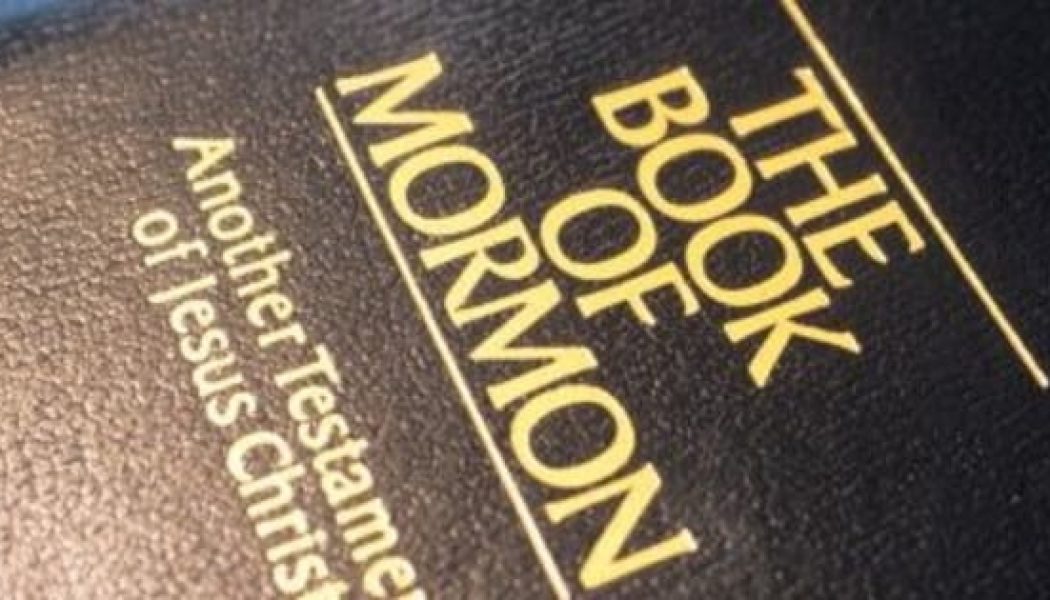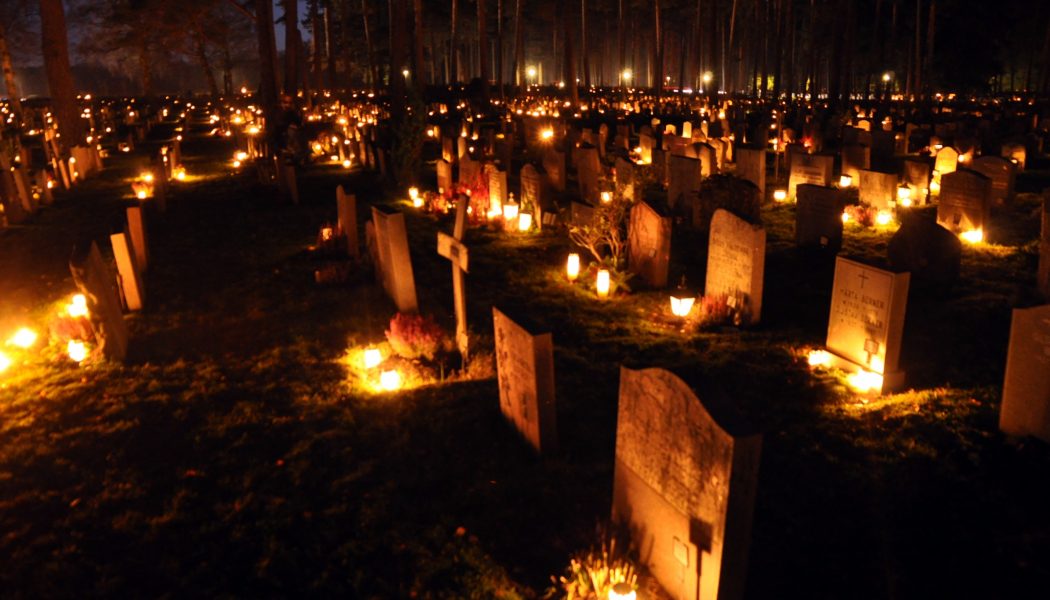Blog
The Lottery Is a Suicidal Craze
“Americans spend about $60 billion on the lottery every year,” says Stephen Dubner, co-author of “Freakonomics.” “More than $500 per American household goes to playing the lottery.” (CBS This Morning) There are at least seven reasons you should not gamble with your money in this way — and should tell your congressmen not to support it. 1. It is spiritually suicidal. “Those who desire to get rich fall into temptation and a snare and many foolish and harmful desires which plunge men into ruin and destruction. . . They have pierced themselves with many a pang” (1 Timothy 6:7–10). 2. It is a kind of embezzlement. Managers don’t gamble with their Master’s money. All you have belongs to God. All of it. Faithful trustees may not gamble with a trust fund. They have no right. The parable of the tal...
Is Halloween Pagan in Origin?
Many Christians struggle to decide how (or if) to celebrate Halloween. After all, it is a holiday that seems to emphasize darkness, superstition and fear. Furthermore, there is the claim that the holiday is pagan and evil in origin – an assertion that simply is not true. Surprise! Halloween didn’t start off as a pagan holiday! Meaning of the Word Halloween The name Halloween is a blending of the words All Hallows’ and Even or E’en (referring to the evening before All Holies Day, or All Saints’ Day, which is November 1). The term hallow means “holy” – you may recall reciting it in the Lord’s Prayer, “Our Father who art in heaven, hallowed be thy name” (Matthew 6:9). Early in church history, Christians began to celebrate the “saints” (heroes of the faith),* and by the 7th century...
What Do the 7 Churches in Revelation Represent? Summaries and Explanations
The Book of Revelation addresses seven letters to seven churches in Asia Minor (modern-day Turkey) (Revelation 2-3). Each letter, as proclaimed by Jesus and recorded by John the Apostle, declares the triumphs and failings of the recipient churches and warns each congregation to repent. The advice in these letters is prophetic, forewarning present-day Christian communities of the snares that can lure us away from our faith. Who Wrote Revelation? Christian scholars from the second century to date have attributed the physical writing of Revelation to John the Apostle, son of Zebedee (Mark 3:17) and author of the Gospel and Epistles of John. Although John literally wrote Revelation, the Book makes it clear that the source of the revelations is Jesus (Revelation 1:1-2). In the first centur...
Hearing Politics a Lot at Church Lately?
To preach is a humble and holy task. Church attenders arrive with the assumption that what is said comes from the Bible. To cut and paste partisan talking-points or to substitute consistent exegesis with sample “election season” sermons is spiritual malpractice. Here are three important reasons why pastors shouldn’t preach politics in the pulpit: 1) Our Text Must Be the Word of God This sounds like a cliche, but it bears saying: faithful Bible preachers use the text of the Word of God as their source of preaching. Anything less is simply a speech, which may be inspirational, moral, or even Christian-themed. But if our basis is not the text, we’re not preaching. Sometimes a given text will make political or moral statements. For instance, i...
Character or Content: Which Matters Most?
With school having started again recently, my life is seemingly consumed with the topic. At home, we have a closet full of school supplies. My desk is covered with textbooks, notebooks, and grade books (metaphorically speaking). So, much of my conversation at this time of the year relates to students and school. Today, I want to reflect on the teachers. Specifically, I want to consider the Christian teacher and what he or she must do to do this task to the glory of God. Paul warned Timothy, “Pay close attention to yourself and to your teaching; persevere in these things, for as you do this you will ensure salvation both for yourself and for those who hear you” (1 Timothy 1:16). Too often teachers (and I include public, private, home, college, and Sunday School teachers in this categ...
Live with Passionate Aim
My quiet moment at an Alaskan lakeside was interrupted with the sounds of young boys as they rushed from a minivan to the side of the lake. They didn’t notice anyone was there as they looked for the small flat stones and began to hurl them across the water. I watched as the pebbles danced and made ripples that reached toward the mountain scene that was making the backdrop so beautiful. There were so many pebbles hitting at once that it looked like it was raining. I never learned the art of pebble-skipping, so I was amazed at how they had mastered the skill. As I reflected, God used these young men to show me a few things about the passionate aim God expects from us as leaders: (1) These boys were passionate. They knew what they wanted to do and they went for it. I thought about...
Missing the Rest of the Story?
Ever come to the end of a book and felt like you were still in the middle of the story? Maybe you were. Some of the longer biblical writings were divided into parts over time. But the overall literary patterns remain. That’s why we sometimes don’t get a sense of an ending when we reach the end of a book. In order to get the book’s full message, we to need read all the parts as a single work. Some editions of the Bible, like The Books of The Bible, actually put the pieces back together in the text. Luke 1 and Acts 1 for example, are actually a two-volume historical study written by Luke. As Luke Timothy Johnson observes, Luke the evangelist “uses geography to structure his story and to advance his literary and theological goals… In the Gospel, the narrative moves towar...
Why Believe in a Trinitarian God?
All Christians believe the doctrine of the Trinity. If you do not believe this—that is, if you have come to a settled conclusion that the doctrine of the Trinity is not true—you are not a Christian at all. You are in fact a heretic. Those words may sound harsh, but they represent the judgment of the Christian church across the centuries. What is the Trinity? Christians in every land unite in proclaiming that our God eternally exists as Father, Son, and Holy Spirit. Those who deny that truth place themselves outside the pale of Christian orthodoxy. Having said that, I admit that no one fully understands it. It is a mystery and a paradox. Yet I believe it is true. I can think of at least three reasons for believing in the Trinity: The Bible teaches this doctrine. Christians everywhere have a...
Is Mormonism Christian?
The answer to that question is easy and straightforward, and it is “no.” Nevertheless, even as the question is clear, the answer requires some explanation. The issue is clearly framed in this case. Christianity is rightly defined in terms of “traditional Christian orthodoxy.” Thus, we have an objective standard by which to define what is and is not Christianity. We are not talking here about the postmodern conception of Christianity that minimizes truth. We are not talking about Christianity as a mood or as a sociological movement. We are not talking about liberal Christianity that minimizes doctrine nor about sectarian Christianity which defines the faith in terms of eccentric doctrines. We are talking about historic, traditional, Christian orthodoxy. Once that is ...
Is Religion Evil?
EDITOR’S NOTE: The following is an excerpt from God Is Great, God Is Good: Why Believing in God Is Reasonable and Responsible edited by William Lane Craig and Chad Meister (IVP). This chapter by Alister McGrath. IS RELIGION EVIL? In October 2005, the World Congress of the International Academy of Humanism took place in upstate New York. Its theme: “Toward a New Enlightenment.” To judge from the conference publicity, its organizers had no doubt of the urgency of their theme. Religion is regaining the ascendancy! We are facing a new dark ages, a new evil empire! Only a return to the Enlightenment can save us! Yet perhaps quite contrary to the intentions of its organizers, the conference offered a fascinating glimpse of the crisis of confidence which is gripping at...
You Might Be a Saint If…
November 1st is All Saints Day! This ceremonial event is a day that we praise all the saints — known & unknown! To honor All Saints Day, please join us in reading or saying this quick devotion: Dear God, praise you for giving us the glorious example of the Saints. I aspire to meet their company, praising you forever in Heaven. Please help me to follow in their footsteps, and yours, Jesus Christ. Please help me to submit myself to Your call, seeking Your order in all things, just as the Saints did. Please help me to commit myself to Your glory, and to the service of my neighbors. Amen. What is All Saints Day? All Saints Day, also known as All Hallows’ Day, or Hallowmas, is a Christian celebration in honor of all the saints from Christian history. In Wester...
Learning to Pray… Again
Have you mastered prayer? I haven’t. I suspect few Christians would report having mastered this great privilege and discipline. In fact, I suspect that most Christians may even feel burdened by their lack of prayer and the seeming ineffectiveness of prayer. We read “pray without ceasing” and it becomes “guilt without ceasing.” If that happens to us, we’ve lost our grip on justification by faith alone apart from any works of our own. If our failures at prayer leave us feeling condemned, we’ve probably began to think of prayer as one of those spiritual duties that keeps God happy with us. To be clear, prayer pleases God (1 Timothy 1:3). Christians ought to pray. But many of us need to learn how to pray as well as fail in prayer in light of the good n...























